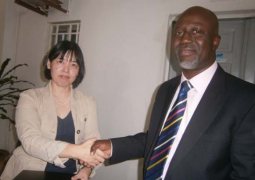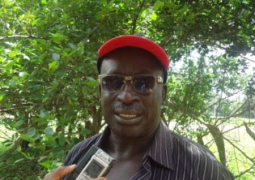As part of the International Day of African Child, Action aid International the Gambia office on Wednesday 16th June 2009, launched a pilot empowerment tool for children, called Children's Reflection and Empowerment for Social Transformation (CREST).
The project will focus on children at the ages of 3-5, 6 -12, and 13- 17 years of age, and will last for a year.
The pilot project in the
Addressing reporters at the occasion, the Country Director of Action aid International, Dr. Kujejatou Manneh told journalists that, the tool aims to harness the potential of children to reflect on the situations and challenges and come up with their own solution to problems facing them and their communities.
According to her, Action aid International West and Central Region (AAI WACAR), has realised that its mission of eradicating poverty cannot be fully attained and sustained without recognising children as important change.
Dr. Manneh, however, noted that "CREST is aimed at providing systematic education for children as important change asset," saying that not only at the country level but also at sub-regional levels.
Dr Manneh further explained that CREST will actively engage children in analyzing and understanding their environments and key factors which influence their lives and livelihood.
"It will provide them space to contribute to their own development as well as the development of their communities which work as well as to its sponsors".
"Part of our aim is to test the potential to nurture a new generation of children who will be chaplain of social, economic, and political integration in
AATG Boss, however said, "I am extremely excited about this very innovative concept focusing on children as agents to positive change and development. For too long, knowledge and initiatives from
Dilating on the impact of the pilot project, she said, it would expose and develop children to know about negative things, adding that they are the future leaders of the country.
This project, according to Action aid officials, is currently being implemented in eleven West and Central African Countries.
Read Other Articles In Article (Archive)

Westfield Clinic signs grant contract with Japanese Government
Mar 11, 2015, 10:41 AM



